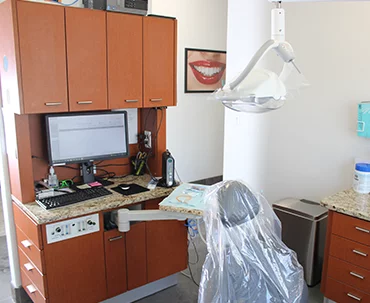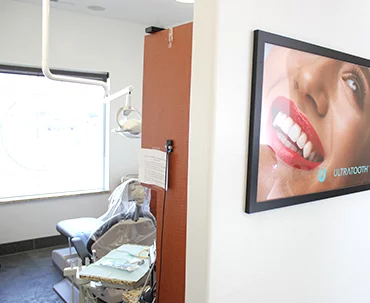High Quality Dental Implants
Ultratooth Utah Implant Center is a Utah-based dental practice committed to delivering the highest quality dental care to all our patients. We have the highest quality dental implants, that have high success rates. Which is the only FDA-approved dental implant that can be placed in one single day. We use cutting-edge technology and state-of-the-art dental equipment to help our patients get the smile they have always wanted.
We believe in a personal, comprehensive approach and offer services like dental checkups, teeth cleaning, dental implants, veneers, dentures, dental extractions, and more in a comfortable and relaxed environment.
We specialize in the use of the Ultratooth implant. Which is the strongest implant on the market. Because of the strength of the Ultratooth implant patient can bite into an apple on the same day the implant was placed. Contact us today to schedule your appointment.
Our office is conveniently located in Pleasant Grove, Utah, right in the heart of Utah County. Call us today and experience why we are one of the highest-rated dental care offices in Utah.




Ultratooth News
Dental Professionals

Dan W. Dansie
Doctor of Dental Surgery

Cindy
Office Manager

Betty
Dental Hygienist

Collette
Insurance Specialist

Brooke
IV Technician / Assistant

Shalynn
Dental Assistant
Patient Reviews

